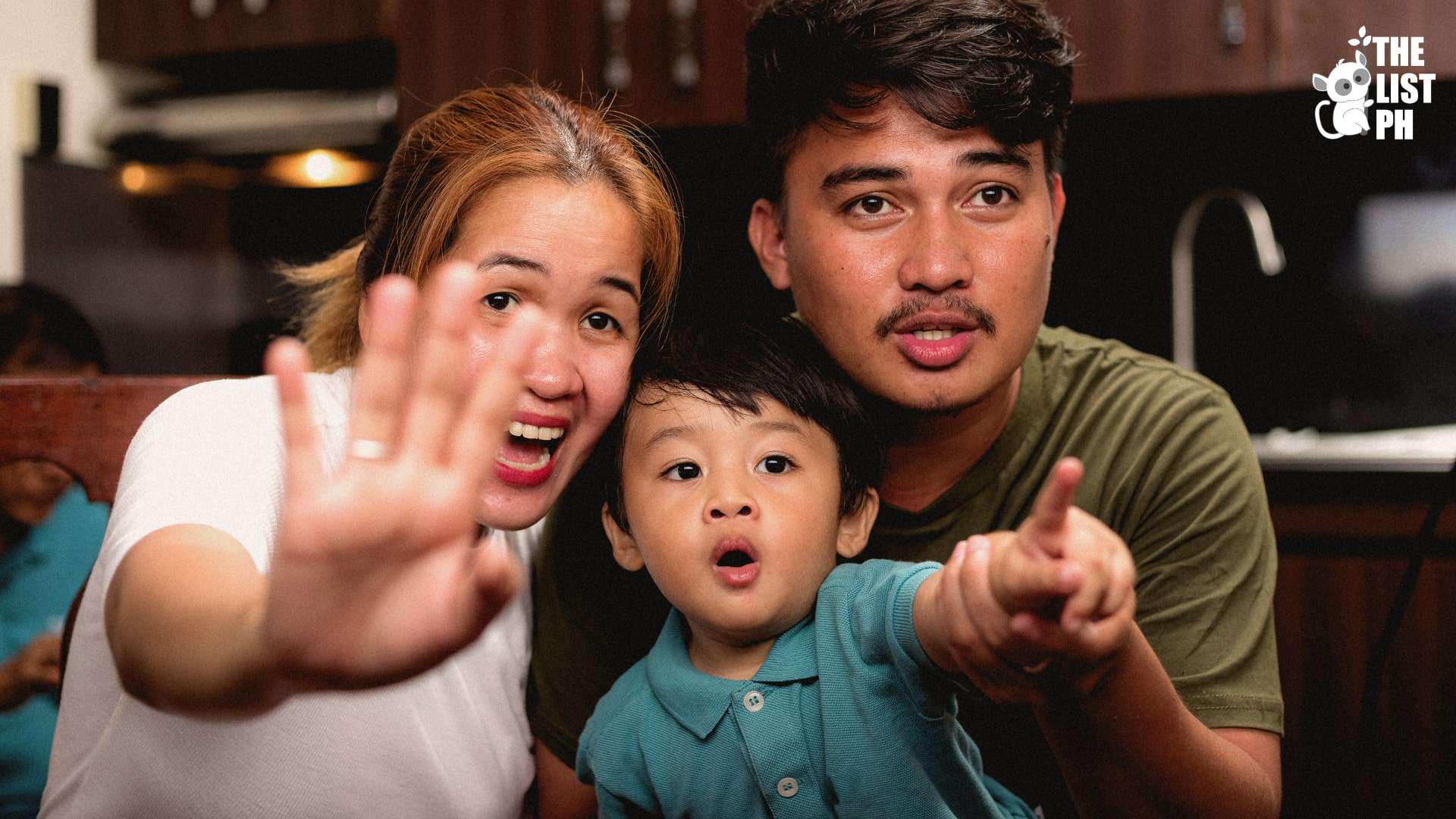
8 Ways Filipinos Greet Each Other
Filipinos are the masters of warm and friendly greetings that can make even a grumpy cat smile. If you’re curious about how we greet each other, you’ve come to the right place!
Whether it’s a respectful “Mano po” or a cheeky “Uy!” we’ve got it all covered! By the end of this article, you’ll be greeting like a true Pinoy pro.
1. “Mabuhay!“

When we say “Mabuhay,” it’s our way of saying “Welcome” or “Long live!” in Filipino. It’s a warm and friendly greeting we use to welcome guests and show hospitality.
You’ll often hear it in various settings, like when you just arrive and land in the Philippines or at a restaurant, hotel, or event. Feel free to use “Mabuhay” when you want to give a cheerful welcome or show appreciation for being in the Philippines!
2. “Mano po!”
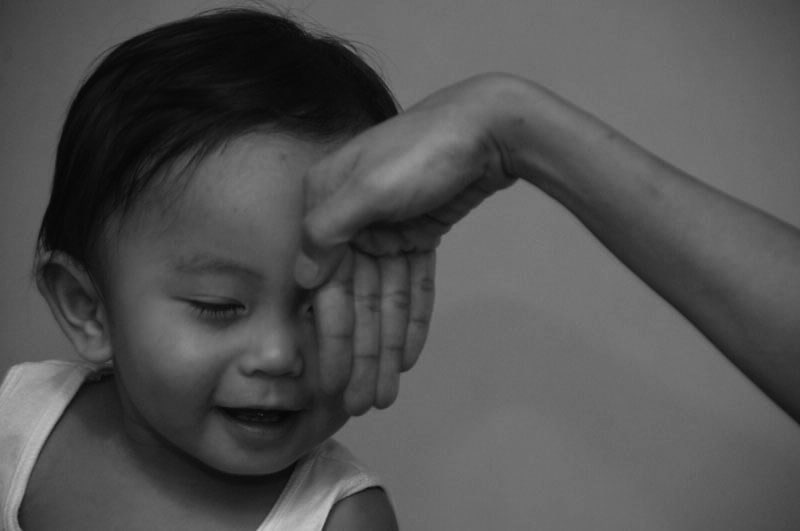
“Mano Po” is a traditional Filipino way of showing respect and love to our elders. When we greet them, we take their hand and gently touch it to our forehead as a sign of honor.
So, if you meet an elder and they say “Mano Po,” just take their hand and do the forehead touch – they’ll appreciate the gesture, and you’ll make an instant connection with our Filipino culture!
3. “Beso beso”

“Beso beso” is like a cheek-to-cheek kiss, but don’t worry, we don’t actually kiss! When we meet friends or family, especially on special occasions, we do a light air smooch on both sides of the face.
So, when you’re in the Philippines and someone says “Beso beso,” just lean in and do the air kiss – you’ll fit right in!
4. “Kamusta po? / Musta?”

Filipinos enjoy checking in on each other’s lives, which is why we greet each other with “Kamusta po” or “Musta?”, both of which translate to “How are you?”.
“Kamusta po” is used for greeting the elders, while “Musta?” is the more casual version, which is commonly used for friends.
5. “Kumain ka na ba?”
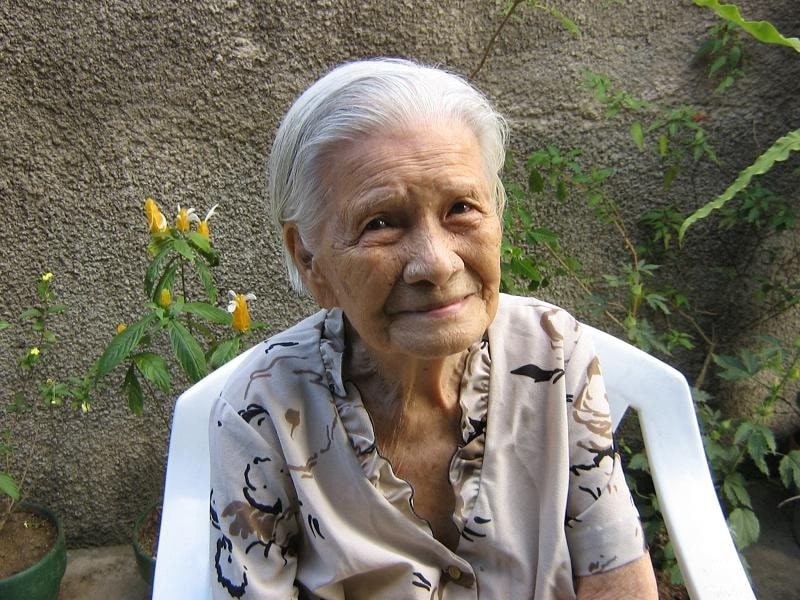
“Kumain ka na ba? ” is a common Filipino greeting that means “Have you eaten?”. Elders often use this greeting as a way to show care and ensure that people have had a meal – it’s one of the more interesting ways we greet each other.
It may appear to be a simple question, but in Filipino culture, it reflects our genuine concern and hospitality toward others. So do not be surprised if you hear this greeting more than once a day; we just want to make sure you are well-fed and cared for!
6. “Hoy!” or Uy!”
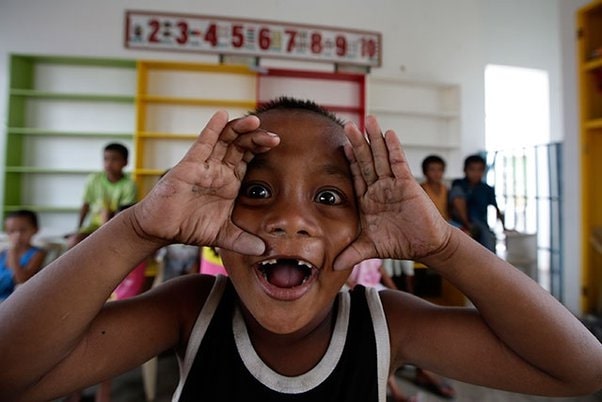
“Uy!” or “Hoy!” are casual and friendly ways of getting someone’s attention in the Philippines – it’s our version of “Hey!” Filipinos use these expressions to call out to friends or even strangers in a playful and approachable manner.
7. Apir or Pistbump
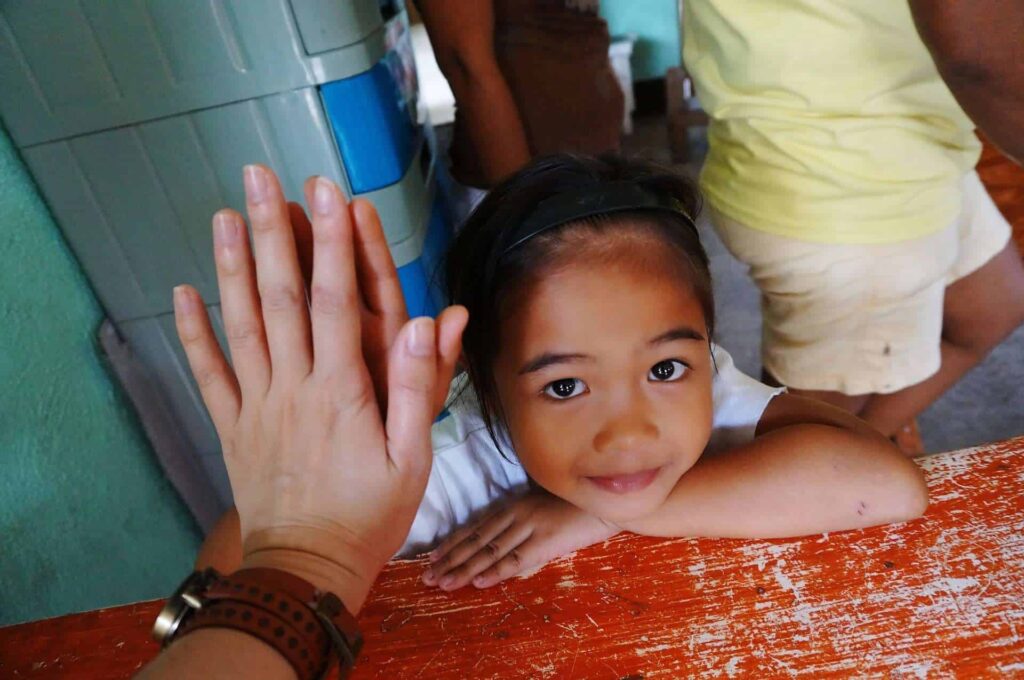
“Apir” or “Pistbump” are unique and fun Filipino hand gestures to express friendship and camaraderie. “Apir” is when you slap each other’s open palm in the air; and “Pistbump” is a fist bump.
We frequently use these gestures as a greeting, as part of a friendship handshake, to celebrate accomplishments, or to show support. So, if you want to connect with locals on a more playful level, don’t hesitate to give these cool Filipino hand greetings a try!
8. “Pssst”

“Pssst..” is a casual and discreet way of greeting and getting someone’s attention in the Philippines. It’s like saying “Hey there, I have something to tell you”, in a low voice or a whisper.
So, if you hear someone saying “Pssst..” to you, don’t be alarmed; they just want to have a quick chat with you in a hush-hush manner. It’s all part of the Filipino charm!





